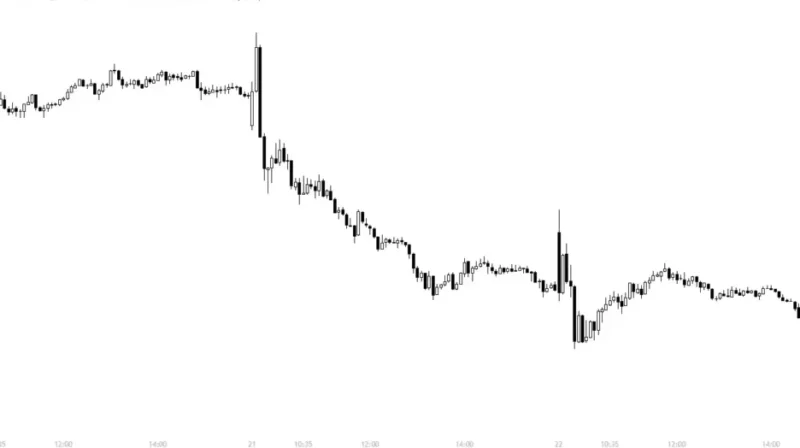- December 20, 2023
- Posted by: Shane Daly
- Categories: Day Trading, Trading Article

Are you considering entering the world of day trading? Day trading offers independence, control, and the opportunity for significant profits, but it also comes with high risks and the potential for initial financial losses.

This guide will provide you with an in-depth look at the pros and cons of day trading, touching on various strategies, risk factors, and the dedication required to become an experienced trader.
Whether you’re drawn to the freedom and flexibility of day trading or concerned of the high-risk nature of this approach, this guide will give you the knowledge you need to make better decisions in the world of day trading.
Key Takeaways
- Day trading offers individuals independence and control over their investments and decision-making.
- Multiple strategies in day trading provide flexibility and adaptability to different market conditions.
- Day traders are not exposed to overnight risk, eliminating the potential for major losses caused by overnight market fluctuations.
- Day trading requires meticulous planning, research, and monitoring of the market to achieve success.
Why Day Trading?

Day trading offers independence and control over your investments and profits. You have the freedom to set your hours, govern your actions, and be your boss. With the flexibility to work in a way that suits your preferences and lifestyle, day trading allows you to have total control and only do what you truly believe in.
Day trading can be done with various strategies that fit your trading style. Analyzing the current market and making decisions can be thrilling for problem-solving types. The lack of overnight risk is another advantage, as day traders aren’t exposed to overnight changes in the stock market, eliminating one of the major stressors faced by long-term investors.
Day trading isn’t a guaranteed way to get rich quickly. Initial losses are common, and they require a substantial amount of capital, leading to significant financial risks. Achieving success in day trading also demands planning and research, with the key lying in your own knowledge and understanding of the market.
What is Day Trading
 Day trading is a common trading style utilized by traders worldwide, involving the opening and closing of trades within a single trading day, allowing for immediate analysis of trading performance. Frequently, day traders monitor short-term price movements and trade setups, utilizing advanced charting systems with intervals of 1, 5, 15, or 30 minutes.
Day trading is a common trading style utilized by traders worldwide, involving the opening and closing of trades within a single trading day, allowing for immediate analysis of trading performance. Frequently, day traders monitor short-term price movements and trade setups, utilizing advanced charting systems with intervals of 1, 5, 15, or 30 minutes.
It involves buying and selling stocks (sometimes options and other assets) based on price fluctuations, and opening and closing a position within the same trading day is considered a day trade. Failing to close a position on the same day does not count as a day trade. It is important to note that position trading and swing trading involve holding trades for longer periods, unlike day trading.
| Pros of Day Trading | Cons of Day Trading |
| Autonomy | High risk |
| Potential for profits | Initial financial losses |
| Various trading strategies | Capital requirements |
| Taking advantage of market overreactions and volatility | Success tied to market conditions |
Day trading offers the potential for significant profits, but it also comes with high risks and potential financial losses. It’s essential to consider both the pros and cons before venturing into day trading.
Pros of Day Trading
Considering the potential for significant profits and the freedom it offers, what are the advantages of day trading for you?
Day trading provides the freedom to work from home, offering a level of autonomy that many find appealing. With the potential to earn a comfortable living, day traders have the opportunity for significant profits at times that suit them.
They can take advantage of various trading strategies and capitalize on market overreactions and volatility often associated with breaking news/economic events. This flexibility allows for quick decision-making based on news and market movements, making it an option for those who are skilled at analyzing and reacting to short-term price fluctuations.
Day trading is a high-risk activity, and there’s no guarantee of earning money. Initial financial losses are common for new-day traders, and success is tied to market conditions and the trader’s ability to know good trading conditions from poor conditions. Despite the potential for significant profits, it’s essential to approach day trading with caution and a clear understanding of the risks involved.
Cons of Day Trading
Day trading involves significant risk and requires careful consideration of potential drawbacks. As you weigh the decision to pursue day trading, you need to acknowledge the cons that come with this trading approach.
| Cons of Day Trading | |
| High Risk | Day trading carries a substantial risk with no guarantee of earning money. |
| Initial Financial Losses | It’s common for new day traders to experience initial financial losses as they navigate the complexities of the market. |
| Capital Requirements | Day trading demands a significant amount of capital, and the associated taxation complexities can be challenging. |
| Success Tied to Market | Your success in day trading is directly tied to market conditions, which can be unpredictable and volatile. |
| Holding Losing Trades | There’s a possibility of losing money by holding onto losing trades for too long, impacting your overall profitability. |
As you consider these drawbacks, it’s essential to approach day trading with a clear understanding of the risks and challenges it presents.
Day Trading Strategies
When actively day trading, you use various strategies to capitalize on short-term market opportunities. These strategies will depend on your personal preference and include:
- Scalping: This strategy involves making numerous small trades to profit from small price movements. Scalpers aim to make small profits on each trade and execute a large number of trades throughout the day.
- Momentum Trading: This approach involves capitalizing on the continuance of an existing market trend. Day traders using momentum trading look for stocks moving significantly in one direction on high volume and attempt to ride the trend. This is usually a breakout trading approach.
- Range Trading: This strategy involves identifying and trading within a specific price range or channel. Day traders using range trading seek to buy at the lower end of the range and sell at the upper end, profiting from price oscillations within a defined range.
These strategies require careful analysis, quick decision-making, and the ability to react swiftly to market fluctuations. As a day trader, it’s essential to understand the details of each strategy and adapt your approach based on changing market conditions.
Requirements for Successful Day Trading
To be successful in day trading, you must have an understanding of market dynamics and be able to react quickly to changing conditions. Being knowledgeable about market trends, price movements, and the different financial instruments is crucial. Additionally, you need to be able to make quick decisions and execute trades promptly.
Having a solid grasp of technical analysis, chart patterns, and trading indicators is important for identifying profitable opportunities and managing risk effectively.
Discipline and emotional control are important pieces of successful day trading. You must be able to stick to your trading plan, manage your emotions, and avoid impulsive decisions. Risk management skills are also imperative to protect your capital and minimize potential losses.
Having access to reliable and fast technology, such as a robust trading platform and a high-speed internet connection, is crucial for executing trades on time. Continuous learning and staying updated with market news and events are also essential for making informed trading decisions.
Financial Implications
After understanding the requirements for successful day trading, you should now consider the financial implications. Due to the high-risk nature of day trading, you need to carefully assess the potential financial gains and losses before committing to this investment strategy.
Here are some financial issues to consider:
- Potential for Substantial Profits: Day trading offers the potential for significant financial gains due to the frequent trades and market volatility. If successful, day traders have the opportunity to earn substantial profits within a short period.
- High Risk of Financial Losses: Day trading involves a high level of risk, and there’s no guarantee of making money. It’s essential to be prepared for potential financial losses, especially during the initial stages of day trading.
- Capital Requirements and Taxation Complexities: Day trading requires a substantial amount of capital to start, and there are complexities related to taxation that traders need to understand and manage effectively. It’s important to consider the financial resources required and the tax implications of day trading before getting started.
Day Trading as a Full-Time Job
Considering your desire for financial independence and freedom, day trading as a full-time job offers the potential for substantial profits but also comes with high risks and significant time investment. As a full-time day trader, you have the freedom to set your schedule and make independent decisions about your trades. This level of control can be exciting, but it also requires a great deal of discipline and commitment.
The opportunity for financial gains exists, but the reality is that day trading can be a demanding and high-stress occupation. You’ll need to dedicate a substantial amount of time to research, planning, and monitoring the market, often spending hours in front of a computer analyzing data and tracking investments. Day trading isn’t a guaranteed path to quick wealth, and many beginners experience initial financial losses.
It’s important to carefully weigh the potential rewards against the considerable risks and challenges before considering day trading as a full-time job.
Common Mistakes and How to Avoid Them
Avoid falling into common mistakes traders make by understanding the risks and using sound strategies to handle the challenges of day trading.
Several common mistakes can significantly impact your success. Here are some of the most frequent errors and how to avoid them:
- Lack of Risk Management: Failing to set stop-loss orders or risking too much on a single trade can lead to substantial losses. To avoid this, always define your risk tolerance and set stop-loss orders to protect your capital.
- Overtrading: Trading too frequently or impulsively can result in poor decision-making and unnecessary losses. To prevent overtrading, create a solid trading plan with predefined entry and exit points, and stick to it.
- Emotional Trading: Letting emotions dictate your trading decisions can lead to impulsive actions and irrational choices. To steer clear of emotional trading, cultivate discipline and follow a consistent trading strategy based on analysis rather than emotions.
Conclusion
Evaluating the decision to pursue day trading? Consider weighing the potential risks and rewards based on your financial goals and risk tolerance.
Day trading offers independence, flexibility, and the opportunity to be your boss, but it also requires significant dedication and hard work. It’s important to recognize that day trading isn’t a guaranteed way to get rich quickly and initial financial losses are common for new traders.
Success in day trading requires planning, research, and an understanding of what makes the market move. While the lack of overnight risk is a benefit, the high-risk nature of day trading means that it can result in the loss of your entire investment.
Becoming an experienced trader requires significant time investment and there’s no guarantee of typical results. It’s crucial to understand that day trading is a high-risk activity, and some studies suggest less than 20% make money in day trading.
Frequently Asked Questions
How Do Emotions Impact Day Trading and How Can Traders Manage Them Effectively?
Emotions can impact day trading by clouding judgment and leading to impulsive decisions. You can manage them effectively by setting clear rules, taking breaks, and using risk management strategies. Stay disciplined to avoid emotional trading.
What Are the Psychological Challenges That Day Traders Commonly Face and How Can They Overcome Them?
Day traders commonly face psychological challenges like managing emotions, coping with losses, and handling stress. Overcome these by setting realistic goals, practicing self-discipline, and seeking support from a community of traders.
How Can Day Traders Develop a Solid Risk Management Strategy to Protect Their Capital?
Develop a solid risk management strategy to protect your capital by setting stop-loss orders, diversifying your investments, and avoiding emotional trading. Stick to your predetermined risk tolerance and never risk more than you can afford to lose.
Conclusion
Day trading offers the potential for independence and significant profits, but it also comes with high risks and the potential for financial losses. It requires dedication, strategy, and a strong understanding of the market.
Whether you’re drawn to the freedom and flexibility of day trading or wary of the risks involved, it’s important to weigh the pros and cons carefully before diving into this fast-paced investing strategy.
